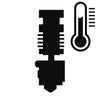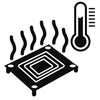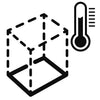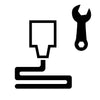SimuBone
SimuBone Bone Modeling Filament allows you to print realistic bone models for clinical and educational use. Our formulation is based on easy to print PLA coupled with specialty additives that gives your part the look and feel of real bone. Our filament is easy to print on practically any 3D printer and mates perfectly our available support material for printing complex parts with dual extruder printers.
MADE IN THE USA
We manufacture all of our filaments in our 68,000 ft² manufacturing facility (located in Grand Rapids, Michigan) using state-of-the-art equipment and processes. Our goal continues to be to make the most innovative filaments on the market – targeting difficult end-use applications.


Print Recommendations






Have a Great Profile? Share It With the Community











